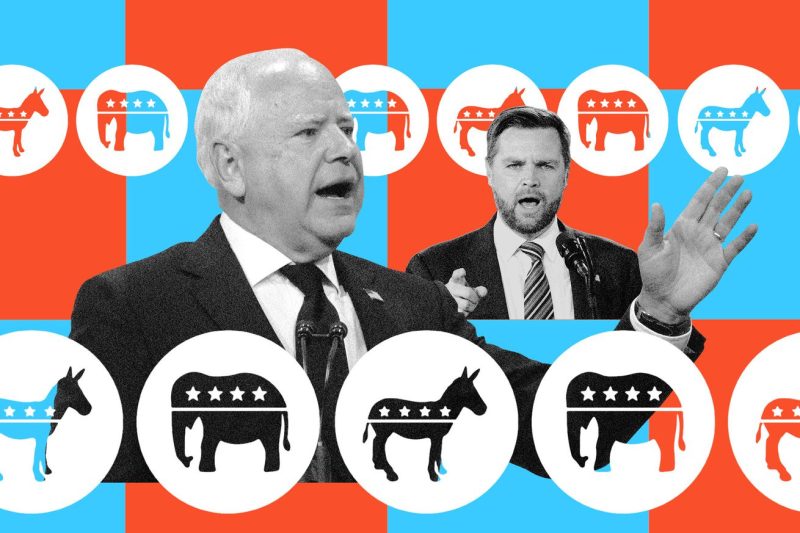JD Vance Avoids January 6th Questions by Pivoting to Facebook Censorship
The intersection between politics and social media has become increasingly convoluted in recent years. With concerns over censorship and misinformation running rampant, public figures are often put under the microscope for their views and actions. JD Vance, a prominent conservative figure and author, recently found himself in the hot seat during a public appearance where he deftly redirected questions about his stance on the January 6th Capitol riot towards the issue of Facebook censorship.
During an interview at the Young America’s Foundation’s National Conservative Student Conference, Vance faced a barrage of questions about his position on the events of January 6th. Critics and audience members alike were keen on hearing his stance on the violent insurrection that took place at the US Capitol. However, instead of directly addressing the queries, Vance pivoted the conversation towards his concerns about big tech censorship, particularly focusing on Facebook’s role in stifling conservative voices.
The move was seen by many as a strategic deflection from the original topic at hand. By shifting the narrative to the issue of social media censorship, Vance effectively steered the conversation away from his potentially controversial views on the Capitol riot. This tactic is not uncommon among politicians and public figures who find themselves in uncomfortable situations, particularly when the topic at hand is contentious or polarizing.
Vance’s pivot to Facebook censorship highlights the broader debate surrounding free speech and online moderation. While many conservatives have raised concerns about perceived biases and censorship on social media platforms, critics argue that such claims often serve as a distraction from holding individuals accountable for their actions and statements. By focusing on the issue of censorship, Vance managed to evade direct scrutiny over his views on the January 6th riot, leaving many wondering about his true stance on the matter.
The incident serves as a reminder of the complexities at play when discussing politics and social media. The power of platforms like Facebook to shape public discourse and influence political opinions cannot be understated. As public figures navigate these turbulent waters, it is essential for them to address challenging questions directly and transparently, rather than resorting to strategic deflections that may only serve to further muddy the waters of public discourse.
JD Vance’s deflection during the Young America’s Foundation event sheds light on the intricate dance between politics, media, and technology in today’s digital age. As the debate over free speech and online censorship continues to evolve, it is imperative for individuals to engage in open and honest dialogue about pressing issues, rather than sidestepping uncomfortable truths in favor of convenient diversions. Only through such candid conversations can we hope to foster a more informed and accountable public discourse.


























